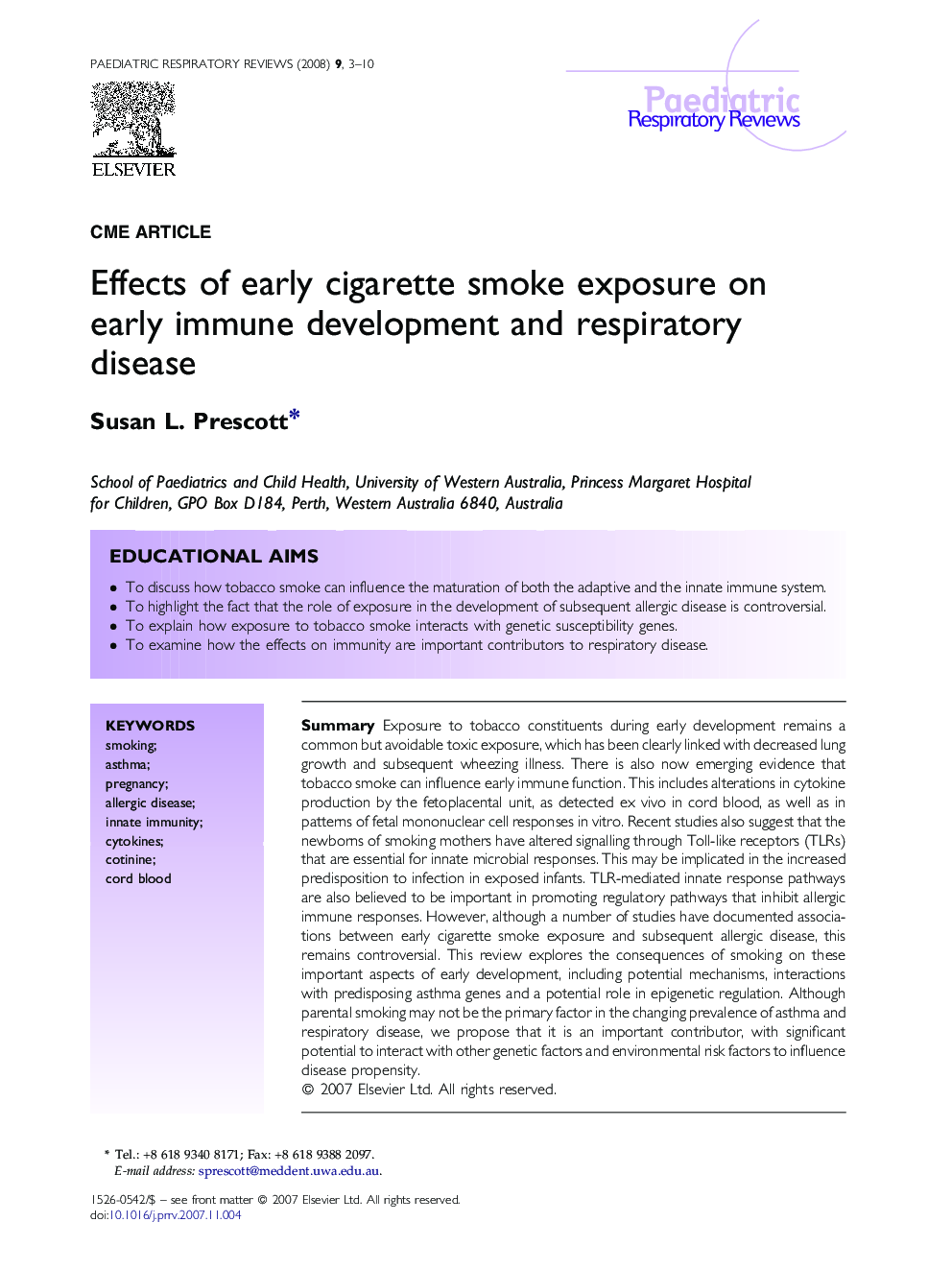| Article ID | Journal | Published Year | Pages | File Type |
|---|---|---|---|---|
| 4171686 | Paediatric Respiratory Reviews | 2008 | 8 Pages |
SummaryExposure to tobacco constituents during early development remains a common but avoidable toxic exposure, which has been clearly linked with decreased lung growth and subsequent wheezing illness. There is also now emerging evidence that tobacco smoke can influence early immune function. This includes alterations in cytokine production by the fetoplacental unit, as detected ex vivo in cord blood, as well as in patterns of fetal mononuclear cell responses in vitro. Recent studies also suggest that the newborns of smoking mothers have altered signalling through Toll-like receptors (TLRs) that are essential for innate microbial responses. This may be implicated in the increased predisposition to infection in exposed infants. TLR-mediated innate response pathways are also believed to be important in promoting regulatory pathways that inhibit allergic immune responses. However, although a number of studies have documented associations between early cigarette smoke exposure and subsequent allergic disease, this remains controversial. This review explores the consequences of smoking on these important aspects of early development, including potential mechanisms, interactions with predisposing asthma genes and a potential role in epigenetic regulation. Although parental smoking may not be the primary factor in the changing prevalence of asthma and respiratory disease, we propose that it is an important contributor, with significant potential to interact with other genetic factors and environmental risk factors to influence disease propensity.
